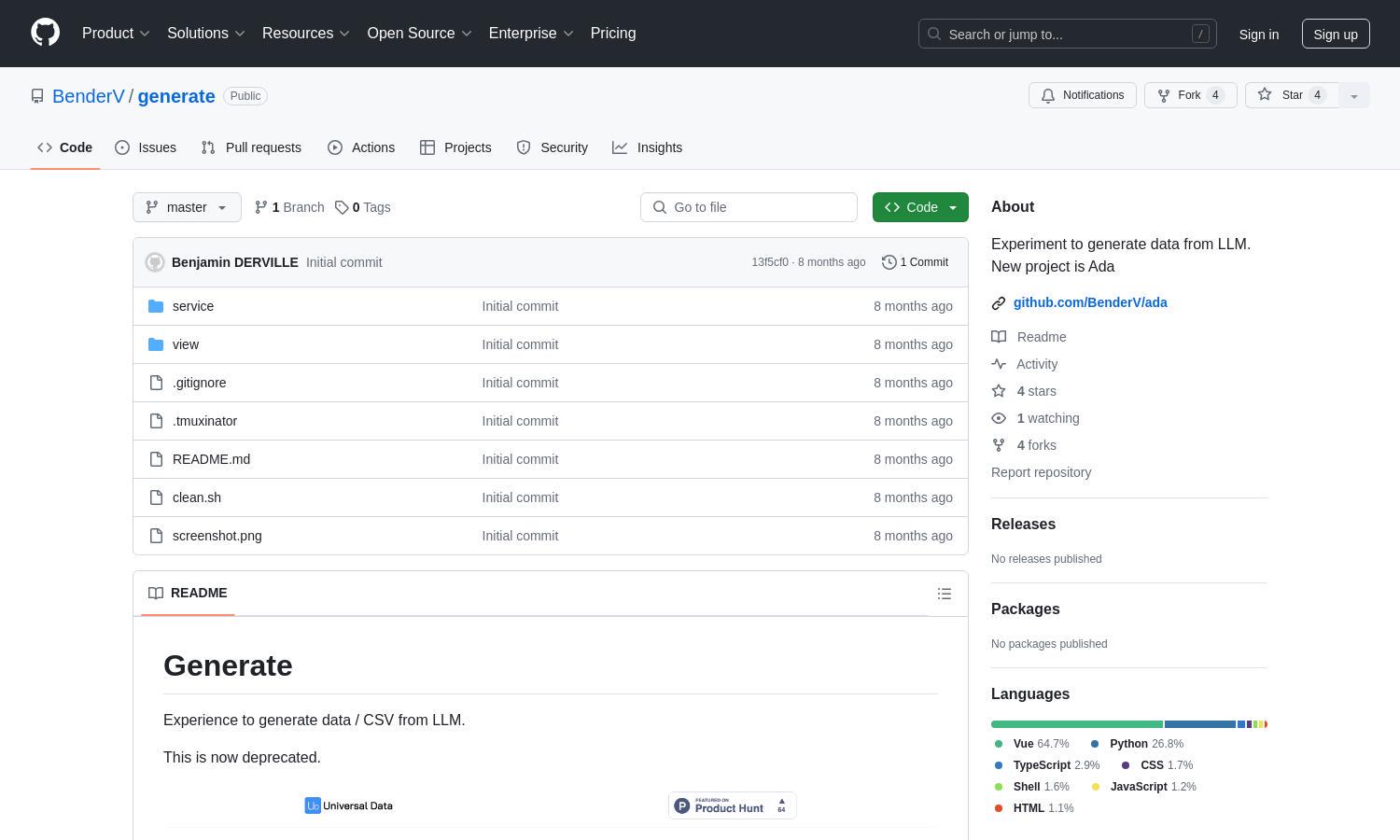BenderV/generate

About BenderV/generate
BenderV/generate is a groundbreaking platform designed for data experimentation with Large Language Models (LLMs). Targeting developers and data scientists, it facilitates effortless data creation through the innovative Ada project. Users benefit from comprehensive tools and resources, enabling them to harness AI's power for effective data generation.
BenderV/generate offers a single pricing plan with no subscriptions at the moment, making it accessible for all users. Currently free to use, this platform focuses on providing advanced tools for data generation from LLMs. Upgrade options may be introduced in the future for enhanced features.
BenderV/generate features an intuitive and user-friendly interface, ensuring a seamless experience for all users. Its clean layout enhances navigation between various tools and functionalities, making data generation accessible. Unique features streamline access to resources, boosting productivity for users exploring LLM capabilities.
How BenderV/generate works
To use BenderV/generate, users first onboard by signing up on the platform. Once registered, navigate to the innovative Ada project to explore various data generation tools powered by Large Language Models (LLMs). The straightforward interface guides users through each feature, enabling effortless data creation and integration into their workflows.
Key Features for BenderV/generate
Advanced LLM Data Generation
BenderV/generate's advanced LLM data generation feature allows users to effortlessly create high-quality datasets. Powered by the Ada project, this unique functionality streamlines the data generation process, providing quick and effective solutions for developers and data scientists looking to enhance their projects.
Seamless Integration Capabilities
The seamless integration capabilities of BenderV/generate enable users to easily incorporate generated data into their existing workflows. This feature enhances productivity by allowing developers and data scientists to utilize high-quality datasets quickly, ensuring a smooth transition between data generation and application.
Comprehensive Toolset
BenderV/generate provides a comprehensive toolset designed for effective data generation. This feature equips users with various resources powered by Large Language Models (LLMs), enhancing their ability to create and manipulate data efficiently. Users can expect a rich experience tailored to their data needs.








